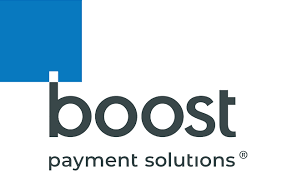The new CEO of expense and travel software company Emburse says the company’s private equity ownership gives it a leg up over the venture-backed fintechs it competes with.
Emburse CEO Marne Martin, who took the helm of the Los Angeles-based company Jan. 15, pointed to Brex, a fintech rival in the expense management arena that recently cut about 20% of its staff in pursuit of profitability.
“Sometimes you can have an unprofitable business model that might compete with a payments or a lending or a credit supplier in the short term, but it won’t in the long term, because it’s not sustainable,” Martin said during a recent interview.
Most recently the president and chief strategy officer at Sweden-based software company IFS, Martin has worked at public and privately-held software companies. She replaced Eric Friedrichsen, who had been CEO since Emburse’s 2020 founding and will remain on the company’s board.

Emburse, which is profitable, seeks to increase profits this year as the company scales, she said. The company declined to share figures, however.
Emburse was established in 2020, as a group of expense and accounts payable automation companies that private equity firm owner K1 Investment Management acquired. Emburse sells expense, travel management, payments, purchasing and accounts payable services to businesses.
K1 bought up well-performing companies already built on profitable business models and has sought to grow them at a faster clip, Martin noted. “In most private equity businesses, they want a return on their money that is as low-risk as they can make it,” Martin said.
In recent years, venture investors threw money at buzzy payments and fintech startups betting on rapid growth. Some of those companies, reaching the end of their runway amid a more disciplined venture funding environment, are now failing, Martin said.
“You have to think about an optimal way of funding businesses that doesn't starve them but also doesn't give them so much money that they can more easily make bad decisions,” she said.
For its part, Emburse is focused on generating not only profits but free cash flow as well. The majority of the company’s revenue comes from software subscriptions, although it also generates some revenue through interchange. “Having led companies through the dot-com crisis, the financial crisis, the pandemic, to the extent you can generate your own cash, you’re better,” Martin said.
Emburse’s rivals include Brex and fellow expense management fintech Ramp, as well as firms such as Expensify and Concur, Martin said. Brex’s recent cuts present a talent acquisition opportunity, as Emburse is hiring, Martin said.
However, the company aims to be thoughtful about doing so. Its current headcount stands at about 900, and it’s also assessing “synergies” since it’s made a number of acquisitions, Martin said. She declined to provide an estimate for the company’s end-of-year headcount.
To fuel growth, Emburse aims to sell its services to larger customers. It has about 20,000 customers in 120 countries, and processes about $90 billion in corporate spending annually, a spokesperson said. Emburse’s large clients include Exxon Mobil, Honda, Microsoft, Nike and Pfizer.
Mindful of customer acquisition spending, Emburse plans to pursue bigger customers that offer a better cost-to-value proposition, Martin said. Those clients tend to be stickier and offer more cross-selling opportunities, she said.
“We will sell into the very small customers, but in general, we’re looking at customers that are growing businesses, the SMB and enterprise and even the large, multinational segment,” she said.
Martin said she sees a lot of “white space” among business clients not yet being served by the likes of Emburse. “There’s still a huge amount of opportunity with companies and businesses that haven’t bought expense management software, or haven’t had expense management software integrated with travel and cards,” Martin said.
Martin also didn’t rule out acquisitions as an avenue for the company to scale. The company is focused on organic growth this year, although that “doesn’t mean we’re averse to making more acquisitions,” she said.
Last year, Emburse acquired Dallas-based travel spending company TRIPBAM in an effort to bolster its travel spend services; terms of that deal were not disclosed. Armed with capital, private equity firms are expected to be on the hunt for acquisitions in payments this year, especially given the potential for more distressed properties.





















